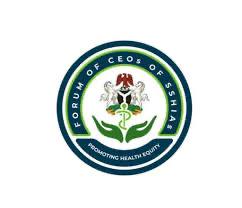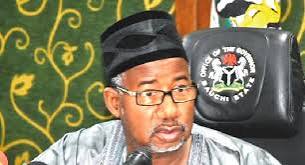In a bold move reflecting Nigeria’s renewed commitment to strengthening its healthcare and education sectors, the federal government has recorded a historic surge in the annual enrollment of nursing students. Official figures reveal that nursing enrollment numbers have jumped from 28,000 to an unprecedented 115,000 within a year, marking a transformative milestone under President Bola Ahmed Tinubu’s administration.
The Honourable Minister of Education, Dr. Maruf Olatunji Alausa, announced the remarkable achievement during a press briefing in Abuja on Monday, April 28, 2025. He attributed the success to the implementation of President Tinubu’s Renewed Hope Agenda, which places special emphasis on revitalizing critical sectors such as healthcare and education. According to the minister, this surge not only surpasses previous targets but also signals Nigeria’s readiness to meet both domestic and international demands for well-trained healthcare professionals.
“This administration has taken deliberate steps to expand capacity in key areas like nursing education, ensuring that our healthcare system is adequately staffed for the future,” Dr. Alausa said. He further praised the coordinated efforts between the Federal Ministries of Education and Health & Social Welfare, led by himself and the Coordinating Minister of Health, Professor Muhammad Ali Pate, in achieving this feat. The government had originally set a target of enrolling 110,000 students annually, but exceeded it, enrolling 115,000 new students across nursing institutions nationwide.
The enrollment boost is seen as part of a broader government strategy to strengthen STEMM (Science, Technology, Engineering, Mathematics, and Medical Sciences) education in Nigeria. By expanding nursing education capacity, the government aims to address persistent shortages in the health workforce while providing opportunities for Nigerian youths, thereby tackling unemployment and boosting economic growth.
Stakeholders, including the Nigerian Council of Nurses and Midwifery, teaching hospitals, and other industry leaders, were acknowledged for their contributions toward realizing this vision. Dr. Alausa particularly commended the collaborative spirit among public and private sector players, which he described as instrumental to the landmark achievement.
Experts say this increase in nursing enrollment could not have come at a more crucial time, as Nigeria and the world at large grapple with growing healthcare demands exacerbated by an aging population and global health challenges. By expanding its nursing workforce, Nigeria not only improves its national healthcare delivery but also positions itself as a hub for supplying skilled healthcare professionals to the international market, where shortages are acute.
The Director of Press and Public Relations, Boriowo Folasade, who signed off the press statement, emphasized that the initiative represents more than just numbers; it signifies a transformative shift toward building a resilient and globally competitive healthcare education system for the country.
With this historic boost, Nigeria’s nursing education sector stands on the threshold of a new era, one that promises better healthcare services for citizens and greater opportunities for its young population.







